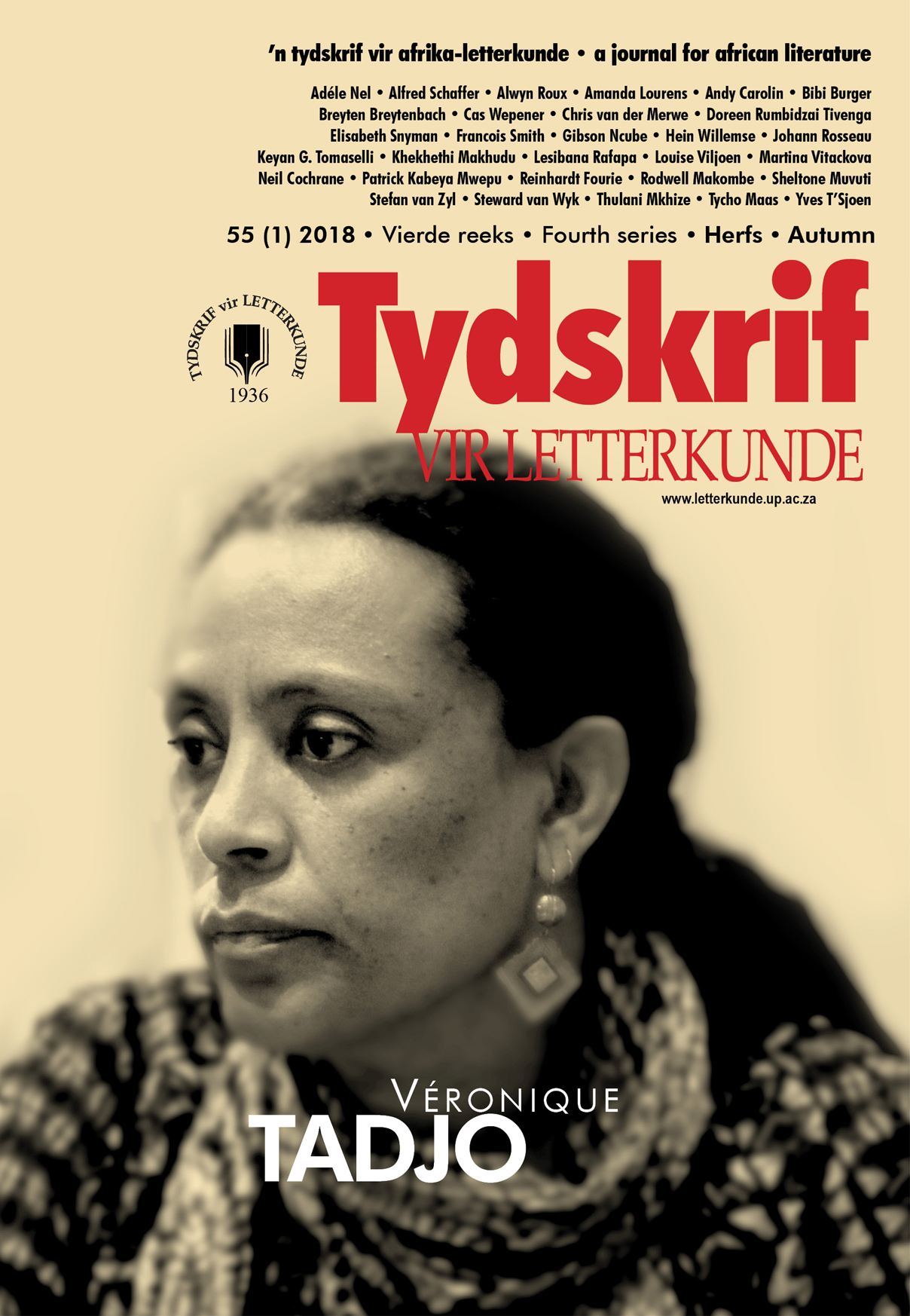Images of woman and the search for happiness in Cynthia Jele's Happiness is a four letter word
DOI :
https://doi.org/10.17159/2309-9070/tvl.v.55i1.1552Mots-clés :
African culture, sisterhood, male companionship, womanismRésumé
Over the years, African ‘feminist’ scholars have expressed reservations about embracing feminism as an analytical framework for theorizing issues that affect African women. This is particularly because in many African societies, feminism has been perceived as a negative influence that seeks to tear the cultural fabric and value systems of African communities. Some scholars such as Clenora Hudson-Weems, Chikenje Ogunyemi, Tiamoyo Karenga and Chimbuko Tembo contend that feminism as developed by Western scholars is incapable of addressing context-specific concerns of African women. As a result, they developed womanism as an alternative framework for analysing the realities of women in African cultures. Womanism is premised on the view that African women need an Afrocentric theory that can adequately deal with their specific struggles. Drawing from ideas that have been developed by womanist scholars, this article critically interrogates the portrayal of women in Cynthia Jele’s Happiness is a four-letter word (2010), with particular focus on the choices that they make in love relationships, marriage and motherhood. My argument is that Jele’s text affirms the womanist view that African women exist within a specific cultural context that shapes their needs, aspirations and choices in a different way.
Téléchargements
Références
Alexander-Floyd, Nikol G. and Evelyn M. Simien. “Revisiting ‘What’s in a name?’: exploring the contours of Africana womanist thought.” A Journal of Women Studies, vol 27, no 1, 2006, pp. 67–89.
Alkali, Muhammad, Talif, Rosli, Yahya, Wan Roselezam Wan and Jariah Mohd Jan. “Dwelling or duelling in possibilities: how (ir)relevant are African feminisms?” GEMAO Mekgwe, Pinkie. Post Africa(n) Feminism, Third Text, vol 24, no 2, 2010, pp. 189–94.
Arndt, Susan. “African gender trouble and African womanism: an interview with Chikwenye Ogunyemi and Wanjira Muthoni.” Signs, vol 25, no 3, 2000, pp. 709–26.
Coleman, Monica, A. “Introduction.” Ain’t I a Womanist Too? Third Wave Womanist Religious Thought. Fortress Press, 2013, pp. 1–13.
Collins, Patricia Hill. “What’s in a name? Womanism, Black feminism, and beyond.” The Black Scholar, vol 26, no 1, 1996, pp. 9–17.
Dove, Nah. “African womanism: an Afrocentric theory.” Journal of Black Studies, vol 28, vol 5, 1998, pp. 515–39.
Gqola, Pumla Dineo. “A peculiar place for a feminist? The New South African woman, True Love magazine and Lebo(gang) Mashile.” Safundi, vol 17, no 2, 2016, pp. 119-36.
Hudson Weems, Clenora. Africana Womanism: Reclaiming Ourselves. Houghton Mifflin Company, 1993.
Hudson Weems, Clenora. “Africana Womanism: an overview”. Out of the Revolution: The Development of Africana Studies, edited by Delores P. Aldridge and Carlene Young. Lexington Books, 2000, pp. 205–17.
Jones, Sam. 2012. “Time of the Writer (TOW) Centre for creative arts, University of Kwazulu Natal.” http://www.cca.ukzn.ac.za/index.php/tow-past-participants/45-tow-2012/227-cynthia-jele-south-africa.
Karenga, Tiamoyo and Chimbuko Tembo. “Kawaida Womanism: African ways of being woman in the world.” The Western Journal of Black Studies, vol 36, no 1, 2012, pp. 33–47.
Mangena, Tendai. “Theorising women existence: reflections on the relevance of the Africana womanist theory in the writing and analysis of literature by and about Zimbabwean women.” Journal of Arts, Science and Commerce, vol 1, no 1, 2013, pp. 7–14.
Murua, James. 2012. “Five things I learnt from Happiness is a four-letter word”, http://www.jamesmurua.com/five-things-i-learnt-from-happiness-is-a-four-letter-word/.
Nnaemeka, Obioma. “Nego-feminism: theorizing, practicing, and pruning Africa’s way”. Journal of Women in Culture and Society vol 29, no 2, 1999, pp. 357–78.
Ntiri, Daphne, W. “Reassessing African womanism: continuity and change.” The Journal of Western Black Studies, vol 25, no 3, 2012, pp. 163–7.
Ogunyemi, Chikwenye Okonjo. “Womanism: The dynamics of the contemporary Black female novel in English.” Signs, vol 11, no 1, 1985, pp. 63–80.
Téléchargements
Publiée
Numéro
Rubrique
Licence
(c) Copyright Tydskrif vir Letterkunde 2018

Ce travail est disponible sous licence Creative Commons Attribution - Partage dans les Mêmes Conditions 4.0 International.


 https://orcid.org/0000-0001-6465-6584
https://orcid.org/0000-0001-6465-6584


.png)